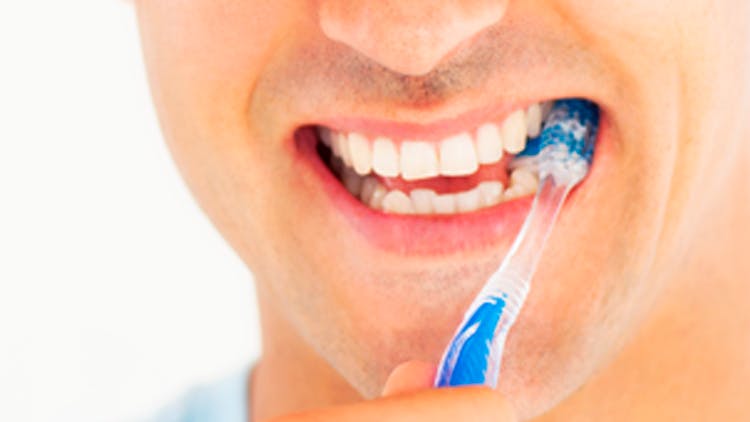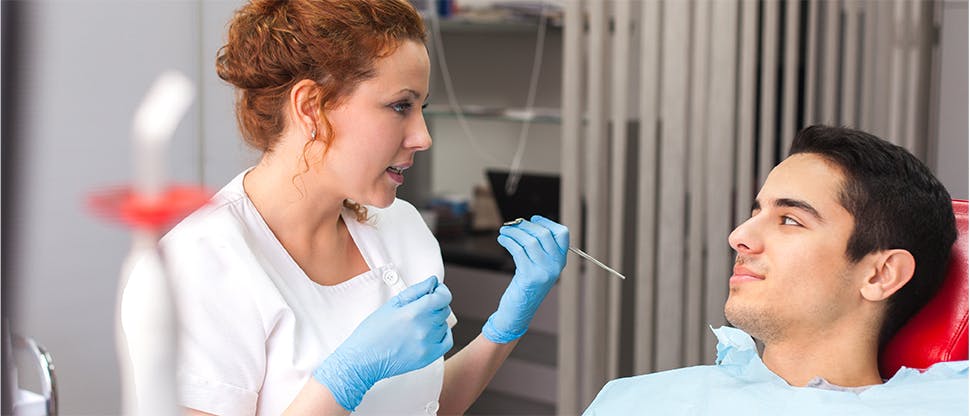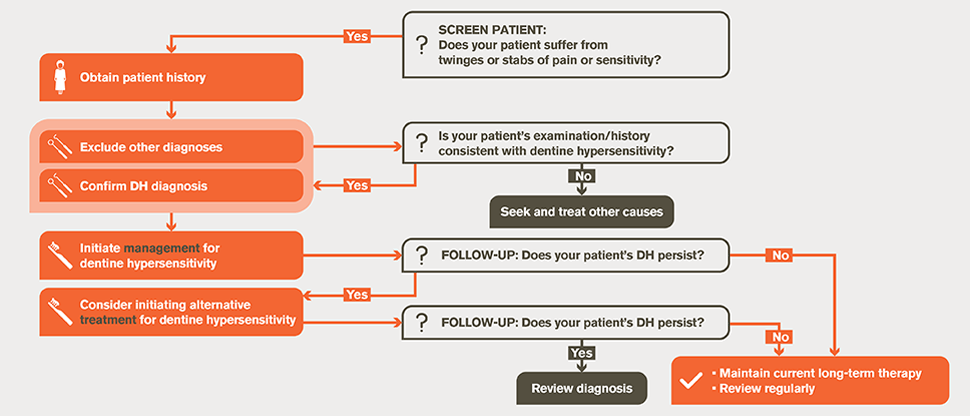Dentin Hypersensitivity: Management

Managing dentin hypersensitivity
IDENTIFY
- Observe patients’ subtle twinges during cleanings or other procedures
- Ask patients about symptoms
- Rule out other causes of pain, like caries and periodontal disease
EDUCATE
- Increase patient awareness – they may be unaware that they’re using coping mechanisms such as changing how and what they eat and drink; avoiding brushing and even avoiding dental visits
- Help patients understand how sensitivity is impacting their behavior and quality of life
- Advise them on correct brushing technique and support them to avoid aggressive brushing
RECOMMEND
- Recommend a soft bristled toothbrush and to use a sensitivity toothpaste twice daily
- Recommend Sensodyne and encourage consistent twice daily use, even after pain has been reduced

Educating your patients
Patients should be educated on how to manage their dentin hypersensitivity through changes in lifestyle and daily oral hygiene habits. Recommendations could include:1
- Avoid aggressive toothbrushing
- Use a soft-bristled toothbrush and sensitivity toothpaste, twice daily
- Schedule regular dental appointments
Maintaining good oral hygiene is important for patients with dentin hypersensitivity. Patients can visit www.sensodyne.ca .
Sensitivity toothpastes can have different mechanisms of action2,3

Recurring dentin hypersensitivity and patient follow-up
Canadian Advisory Board guidelines for effective long-term management of dentin hypersensitivity recommend reassessing patients’ experience of pain at subsequent appointments. If they still experience dentin hypersensitivity pain they should be followed up and reviewed.2



